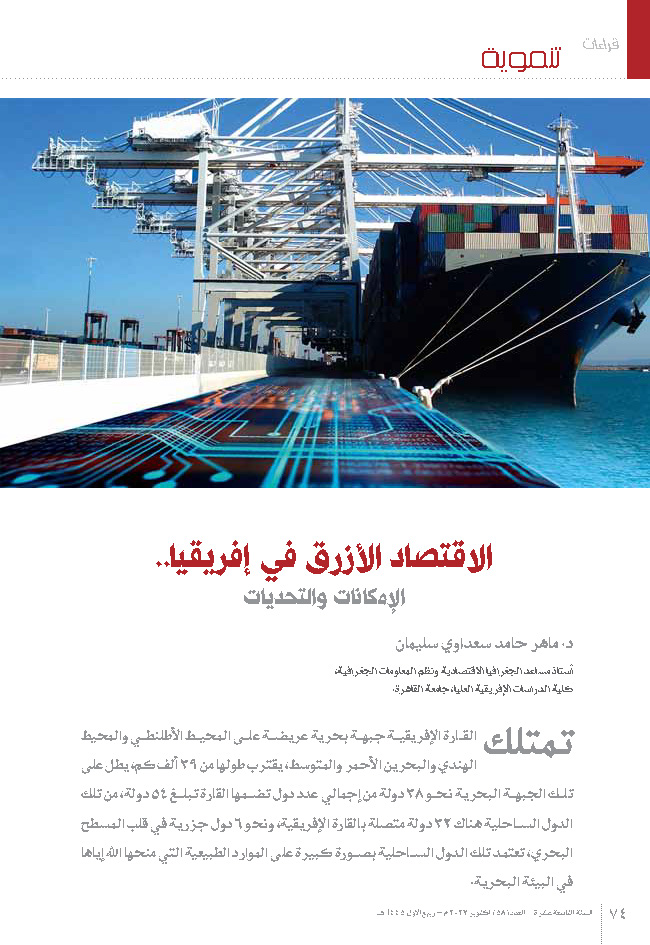Publisher: Qira’at Afriqiyah Magazine
Issue: 58, October 2023
ISSN: 2634-131X
Year : 19
Pages: 74-95
Author: Maher Hamed Saadawy Soliman
Download pdf

Abstract:
The World Bank has defined the blue economy as “the sustainable use of ocean resources for economic growth and improved livelihoods while preserving the health of ocean ecosystems.” The blue economy applies to coastal sectors and marine activities, such as fisheries, maritime transport, coastal and coastal tourism, renewable energy, marine mining, and marine management waste. the blue economy also promotes sustainable development of the marine environment and works to combat coastal climate changes. The African continent has a wide sea front on the Atlantic, the Indian Ocean, the Red Sea and the Mediterranean, with a length of approximately 39 thousand km. About 38 countries overlook that sea front, out of the total number of countries included in the continent, amounting to 54 countries. Of those coastal countries, there are 32 countries connected to the African continent. And about 6 island countries in the heart of the sea surface, these coastal countries depend heavily on the natural resources that God has granted in the marine environment. From a geographical perspective, the research paper was concerned with clarifying and presenting the importance of the blue economy in the African continent and how the continent exploits its marine resources. The research discusses the benefit of African countries from their coastal resources, the most important of which are fishing, maritime transport, tourism related to the marine environment.
